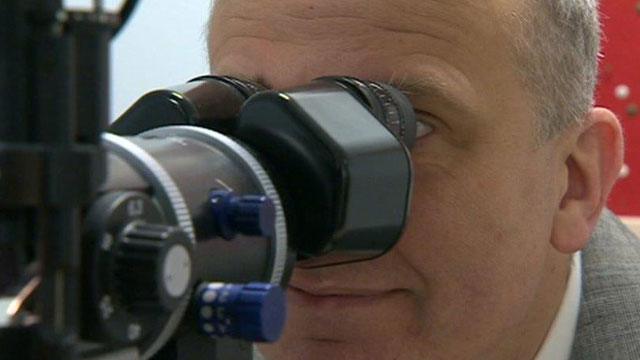Cost of Living: 'Wrong' to reduce glasses help for Wales' poorest
- Published

There were 348,740 NHS sight tests of patients in Wales according to latest figures
Plans to reduce financial help for some of the "poorest and most vulnerable" people in Wales towards the cost of their NHS glasses has been criticised.
Proposals to lower the current £39.10 contribution for children and adults on some benefits to £22 in a cost of living crisis have been called "wrong".
The Welsh government has said the amount was agreed by the group that represents optometrists in Wales.
The Welsh Parliament is expected to discuss the proposal in the new year.
Opticians and opposition parties have said the majority of children and people eligible for NHS glasses would get less of a contribution than those in the rest of the UK if the new proposals come into force.
Patients who get financial help - or optical vouchers - towards glasses from the NHS are split into 10 bands, external - from the least to the most complicated prescriptions.
Those needing glasses with the least complex eyesight problems are the most popular in Wales as latest official figures show almost 75% of the 132,000 patients, external were in that lowest band.
Sali Davis, the chief executive of the body that represents opticians in Wales, said in a recent interview, external that children and adults that claim certain benefits who are in that lower band could see their £39.10 contribution towards glasses lowered to £22.
Optometry Wales has expressed "significant concerns" about the plans and while the government claimed it "agreed" with the proposals, Optometry Wales said in a statement on their website, external it was "not in favour of supporting the changes to the voucher system in Wales"
"We fought for Welsh government to consider both retaining the current system and when details of the 2% increase were announced in the middle of the negotiations for England, we also argued for this to be reflected as historically has happened," the statement read.
Opposition parties in Wales have also accused the Labour government in Wales of taking money away the from "those that need it the most".
"I think it is totally wrong for the Welsh government to take a different approach and take funds away from those that need the most," said Russell George MS, health spokesman for the Welsh Conservatives.
"By doing this, Labour ministers are making a conscious choice to make it more expensive for the poorest people to literally see - and a choice to take a different decision to what is happening elsewhere in the UK."
Plaid Cymru also called the proposal "unfair" and called on the Welsh government to "rethink" the plans.

All children in Wales are entitled to glasses paid for by the NHS
"We don't want people not to make the right choices in terms of their eye health," said Plaid's health spokesman Rhun ap Iorwerth MS.
"We're talking about essential vision correction here and I don't want to see people who are struggling financially deciding not to take necessary steps in terms of their eyesight because they can't afford it."
Wales' chief optometric advisor David O'Sullivan said in a briefing in September that 112,610 people in Wales were waiting longer than clinically agreed, external - with about 70% of those at risk of irreversible sight loss.
The Welsh government has said it wants to reduce the number of referrals into hospital eye departments by one-third by training up community opticians to undertake certain procedures.

You can get NHS vouchers towards the cost of glasses or contact lenses in Wales if:
You are under 16
Between 16 and 18 and in full-time education
Need complex lenses
You or your partner receive certain benefits
You are under 20 and the dependant of someone receiving certain benefits
You have a low income
* Source: NHS Wales

A record 134,285 people are waiting for optical treatment in Wales - with almost half, some 63,649, of patients waiting longer than the agreed Welsh Government target.
The plan by Welsh ministers is for those patients that would have been seen in hospitals to have their follow up appointments in community opticians, therefore increasing capacity in hospital's eyecare departments.
"There are elements of the changes that are welcome," added Mr ap Iorwerth.
"But when we look at the reduction being proposed in the voucher, I think that's a matter of asking the very poorest in society to pay for implementing these changes.
"I don't think that's acceptable at any time, especially during a cost-of-living crisis."
Both Plaid and the Conservatives said the Welsh government should pay for any health reforms in general taxation.
"We've got some of the biggest challenges in the Welsh NHS," said Mr George.
"We've got longer waiting times for treatment and longer response times for ambulances.
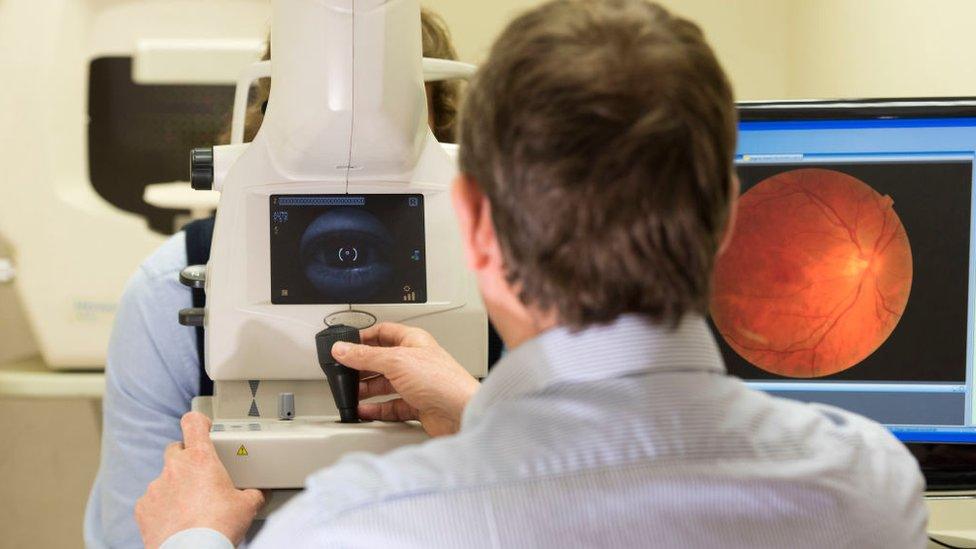
High street opticians in Wales are to treat more complex eye problems to help ease the pressure on ophthalmology departments in hospitals
"I understand why the Welsh government want to make reforms but their mismanagement of the Welsh NHS over the past 20 years shouldn't be taken out on those that need this glasses contribution the most."
Money to help patients buy glasses comes from the UK government but distributed within Wales by the Welsh government - so while the contribution could reduce in Wales, the voucher in the other UK nations will remain the same.
Other groups representing opticians have also expressed concern about the Welsh government's proposals.
The Association of Optometrists has done research which "shows many patients are already struggling to afford adequate eyecare".
"It would be simply wrong for the Welsh government to implement cuts to benefits for the poorest in our society at such a time," said AOP chief executive Adam Sampson.
Another association that represents eye care providers is worried about the "negative impacts of cutting patient benefits to part fund reforms, especially during a cost-of-living crisis".
FODO, whose members do more than 18 million eye examinations in the UK every year, called it a "regressive policy".
The Welsh government said its new contract and voucher values were agreed by Optometry Wales.
"We are providing an extra £30m over two years for this new contract, and the value of most vouchers have actually increased," a government spokesperson said.
"We are committed to ensuring all those eligible do not have to pay for the optical appliances they need and that optometrists costs are covered."
- Published29 June 2022
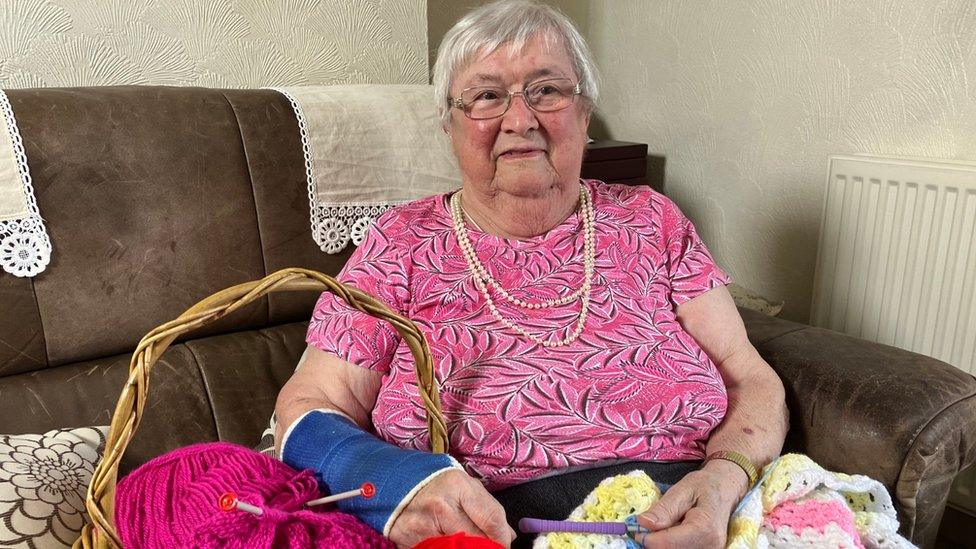
- Published8 May 2022
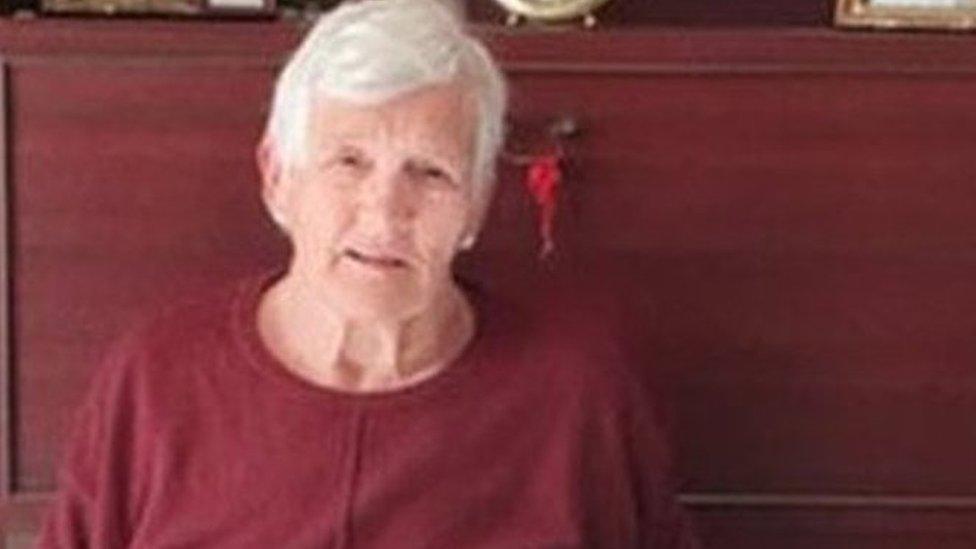
- Published26 April 2022
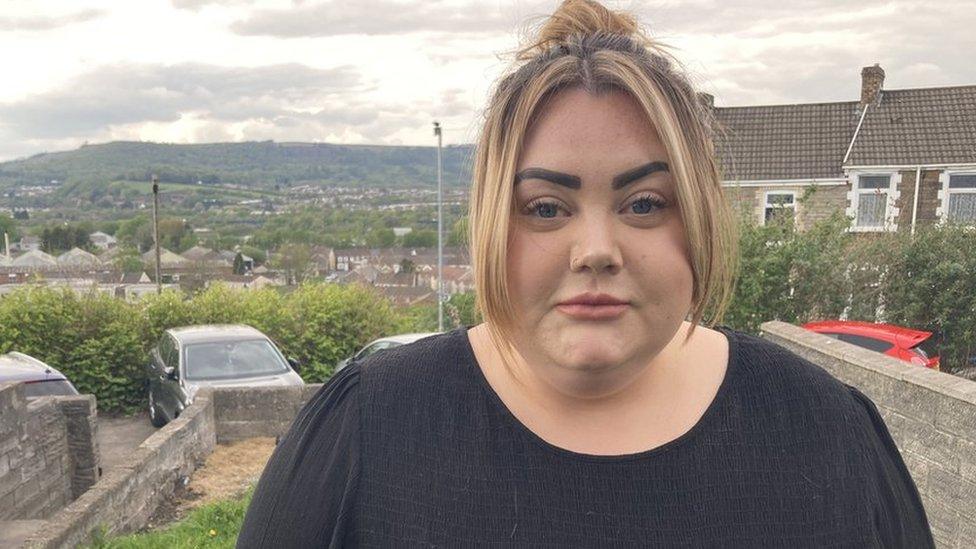
- Published20 June 2021
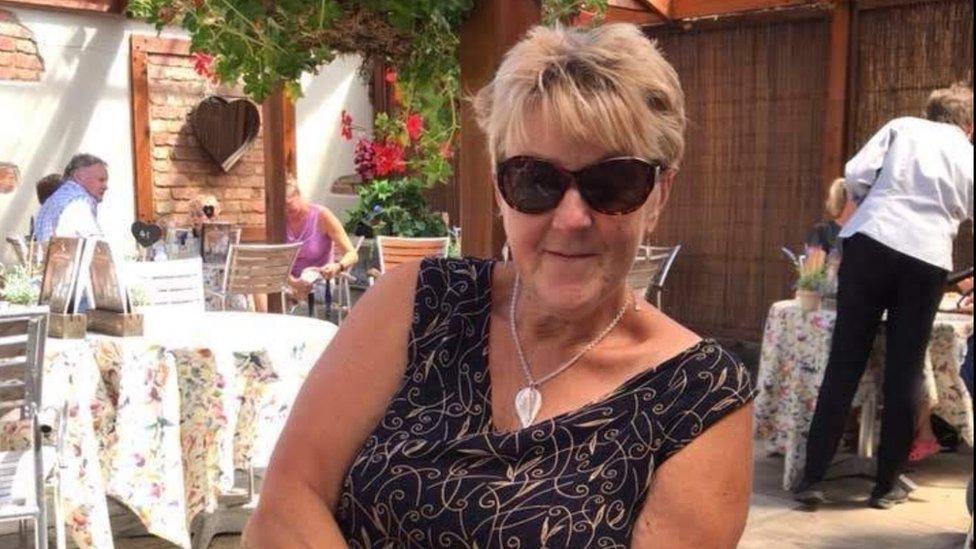
- Published5 September 2018

- Published13 April 2015
